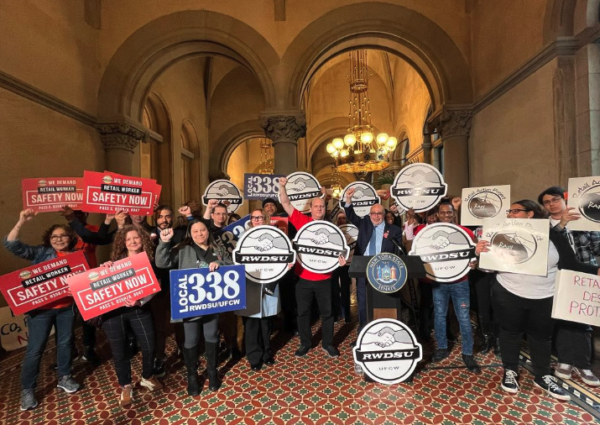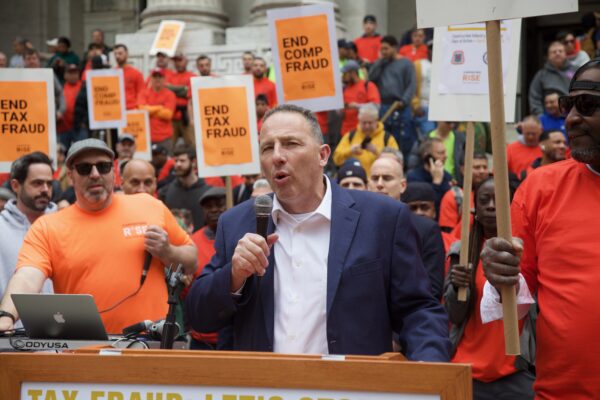May 17, 2016
By Joe Maniscalco

New York, NY – After six years without a raise, members of the union representing faculty and staff at the City University of New York last week overwhelming voted to authorize a strike — something they haven’t done since 1973. But why haven’t state legislators and CUNY administrators been able to come up with the money to give hardworking CUNY staffers a fair contract? The answer might have more to do with those being taught than those doing the teaching.
“I think what we feel is the failure of CUNY management and the state to invest in a decently-funded contract for us, reflects a deeper failure to invest in the students we teach,” PSC-CUNY President Barbara Bowen recently told LaborPress.
CUNY students predominantly come from low-income communities. Three quarters of them are people of color. The opportunities that the system affords those from disadvantaged communities is one of the main reasons many educators choose to teach and work at CUNY.
That dedication, however, hasn’t prevented CUNY faculty and staff from lagging far behind all of the other statewide unions and most of the city’s unions who have successfully secured contracts.
“If New York State took that [poor and minority] population seriously, then there would be serious investment in CUNY, including in our contract,” Bowen said.
The campaign to provide additional funds needed to settle a contract for CUNY faculty and staff has its champions in Albany. NYS Assembly Speaker Carl Heastie, Assembly Member Deborah Glick, head of the Higher Education Committee, as well as a number of minority caucuses, are viewed as strong advocates for pay raises. But time is running out for legislators to come up the cash.
While 92-percent of PSC-CUNY members have voted to strike, the union’s executive council has not yet taken up the question and will not deliberate until next fall at the earliest. But the New York State Legislature’s current session ends in mid-June.
Back in 1973, CUNY administrators settled a contract about two weeks after union members voted to authorize a strike.
“During this past six years with no raise, I've earned tenure, published a co-edited book, and taught a couple thousand CUNY students, many of whom face struggles academically and in their lives,” Manhattan Community College Professor Deborah Gambs said in a statement. “Yet for nearly two years now I have needed a roommate in my Queens studio apartment to help cover my rent. I’m not a starving artist! I am a tenured professional with a full-time job, who lives in one of the most expensive cities in the U.S. I should be putting all my energy toward my students, who are working to overcome challenges far greater than the ones I face, but stagnant pay and rising costs don’t allow me to do that.”
PSC-CUNY’s executive council consists of 27 members – each obtains their seat through direct election and are representative of most of the colleges in the higher education system. Last week’s strike authorization vote was even more potent than the one authorized in 1973 when the measure passed by a 4 to 1 margin.
“It’s time to put an offer on the table that is not an insult to the people who work their hearts out,” Bowen said.



